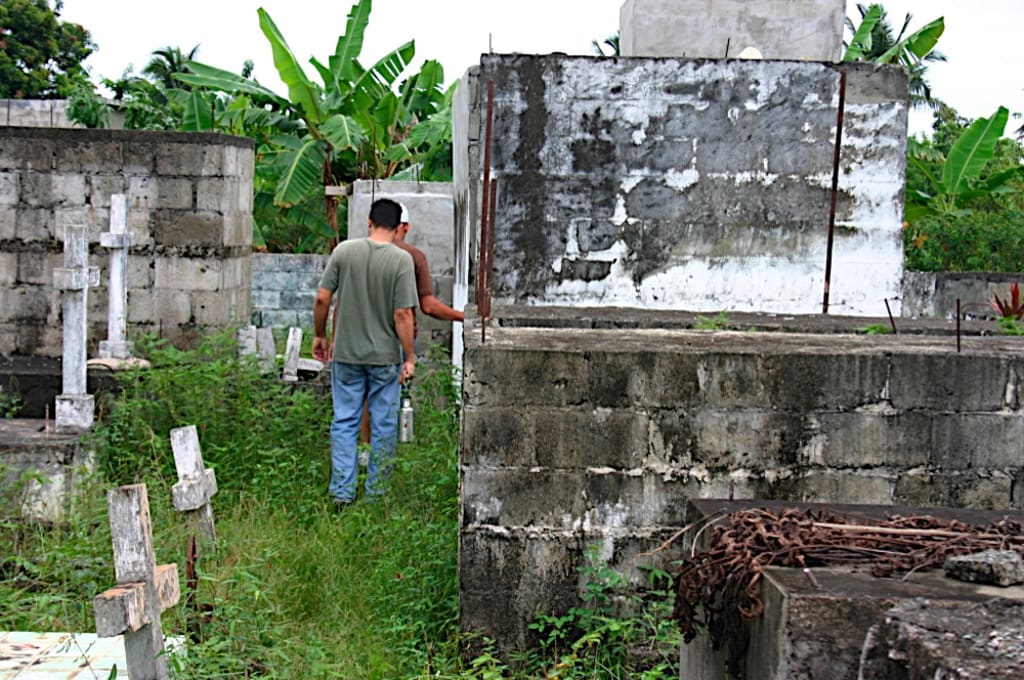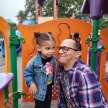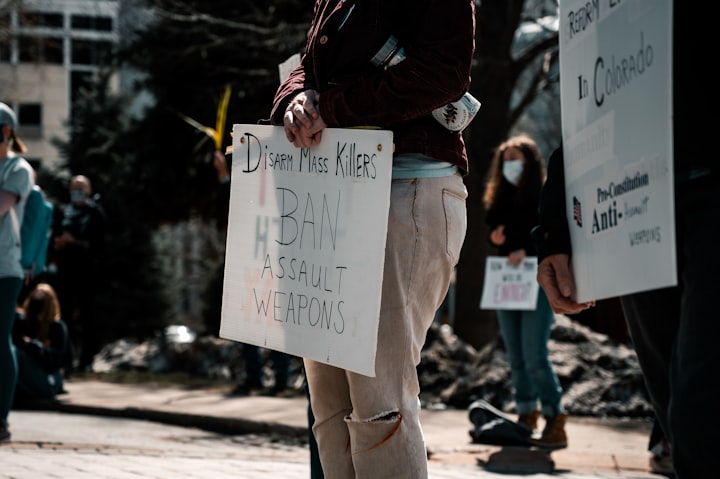With Papi, It's Complicated
My Path to Seeing My Father

Father’s Day didn’t always engender wholesome, pure thoughts and feelings, imbued with nothing but loving-kindness when I think of my childhood. None of the nurturing understanding I have aspired to offer my two children used to come up. My own complicated relationship with my dead father loomed so large in my heart that it used to feels as if I was always in a battle royale with him through the years, wrestling over every instance in which I can or should be a better father than he was, complicated by those instances when I wish I could offer my own children what he offered me.
For over thirty years, Tomás, the man murdered more than 1,500 miles away when I was a teenager, has lived inside my mind, soul, and body. When alive, he had moments. They were magnificent moments, the types of moments that inspire stories worth telling. And even though I was angry at him for creating the situation that led to his death (to this day no one in our family believes it was a random act of violence), and for planning to move us back to the Dominican Republic after we had established friendships in Louisiana, and angrier still for being a crappy weekend drunk who never got the chance to get better, I did love that man. He was Papi to me, never father in English, or Tomás in any language, god forbid, when he died.
But what is love if it doesn’t include forgiveness? If I continue to love him, as I believe I do, then it must include forgiveness, even for crappy fathers such as he, who are part-time wonderful. I can’t speak for my mother or my siblings, but I found within me the ability to forgive him in 2009 when I took a solo trip back to our birthplace. It was the father-son trip we never had a chance to take, yet he was there, especially when I finally met some of his family for the first time in my life.
I often imagine what Papi would look like as an older man. In 2009 he would have been 71 years old. What kind of person would he have been at that age? Would he still be a violent weekend drinker? Would he still be a stubborn, overly machista man, barely communicating with his wife and children but expecting full respect and obedience? Or would he have softened a bit? Maybe become more of that bankside fisherman who would take his children to his favorite fishing spots throughout Louisiana? Maybe become like other grandparents, more lenient, doting, and available for the new little ones?
That’s the trouble with trying to reconcile with a dead father. All that’s left of him is an imagined ghost. But that trip in 2009 did help bring me closer to him, enabling me to engage that ghost with less rancor, less hostility. Seeing the land where he grew up. Seeing the places he walked before his last breath, the structure where he was stabbed to death (it was in a multi-cabana rent-by-the-night site that I did not enter), it filled in holes. And then there’s that graveyard, a small plot of land with humble markers, but none for Tomás Díaz. Gone, maybe fallen, maybe accidentally knocked over, or just plain faded, its absence keeping the place where his bones lay hidden from the son who would come searching for him. No matter how hard I looked, guided by his half-brother, an uncle I’d only met for the first time just hours before, there was no marker for him. It was as if the world was reiterating to me what I knew as a child. My father was there, but I couldn’t reach him.
When I learned of his death, I cried for two weeks straight, fueled by sadness over losing him, anger at him for leaving, and guilt for all the times I imagined defying his desire to return us to his home. No matter how far he flew from the island, the little hamlet in the middle of the mountains I saw with my own eyes for the first time in 2009 would never let him go. There was a dream he carried in his heart that sprang in that place. A dream, unfortunately, his eldest child did not share. At the time of his death, we couldn’t have been more apart.
This year’s celebration of Father’s Day brings with it the same box of contradictions it has brought me my entire life. Before my father’s death, teenage me held back anger towards him for the drunken weekends, the late-night fights with Mami, and the cold-distanced authority with which he engaged me and my siblings. Mixed in there, of course, was the love I felt for him when he came back to our family as a seven-year-old after almost three years separated from us. And awe, too. There was such awe. Until the day I had to stand up to him and call him out on his crappy drunken behavior that same year he died, I lived in awe of him. He loomed so large in my life as a child. I wanted desperately to be the best son possible so that he would be happy with me. And isn’t that it, after all, for all children? They want to do their best to be recognized, to be accepted, to be seen by their fathers. I was no different.
When I couldn’t find his grave, I thought I felt his ghost touching me deep within my chest, changing me in a way I never imagined possible, giving me an outsider’s eye view of our relationship, of his life. In that instance, I saw him, for the first time, through his story instead of mine. I saw the young man who grew up in a mountain-side hamlet hungry, fatherless, ignorant, but full of ambition and dream. God, he had dreams. Because he dared to dream of being more than what he was born into, he opened the world for me, teaching me more in his death than he ever did in his life, teaching me how much he loved his children and how much he wanted for them to become more than he ever was. His inability to show it wasn’t all his fault, though I could play that game and wonder why he couldn’t rise above it, but that’s a useless track. He was a man of his time, shaped by how he was raised, by where he was raised.
That I got a chance to see his home, plant my feet in the spaces where he once walked, look over the spaces where his bones lay, reinforced for me that to finally have a meaningful relationship with Papi, I had to forgive him and myself for the parts that caused so much pain. Only through this forgiveness, could I ever have had a chance to reconcile the contradictions, hold them both within without falling apart, and tease out of them like coffee through a filter, the parts worth holding, smelling, and digesting. We had a troubled relationship in life and after his death for a while, but every Father’s Day now reminds me that so long as one of us is still on this earth, we have open to us the doors to forgiveness and reconciliation. In this sense, even men who are failing at fatherhood deserve a chance to become the fathers they dream in their hearts of becoming.
About the Creator
Lucas Díaz-Medina
I'm a Dominican immigrant living in the New Orleans area since the 70s. A father of two, I've been a service worker, war medic, ER tech, pro fundraiser, nonprofit leader, city bureaucrat, and now a PhD'd person, but always a writer.






Comments
There are no comments for this story
Be the first to respond and start the conversation.